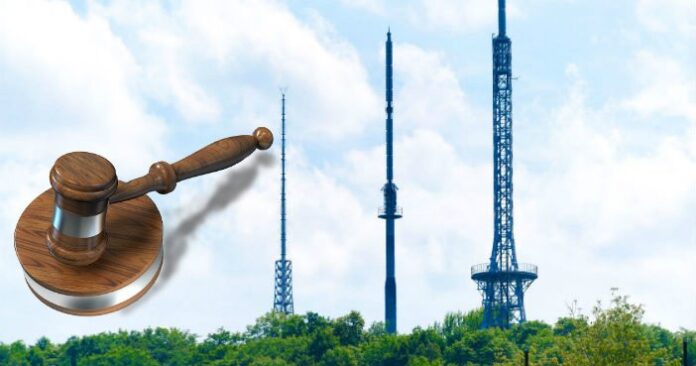Court rules AT&T will stand trial in tower case
Last week, RCR Wireless News reported on a legal proceeding in Allentown, Pennsylvania, where AT&T and several other parties are the defendants in the case of fallen tower climber Thomas Jeglum. AT&T wanted to be excluded from the case, claiming there was no general or specific jurisdiction over the carrier in Pennsylvania since they are incorporated in Delaware, with main offices in Atlanta and Dallas. However, the court disagreed and denied AT&T’s request.
Don’t pop that champagne or get the pitchforks out just yet, though. This new development may be a temporary one if Jeglum’s attorneys cannot prove AT&T does business in Pennsylvania or has at least part ownership of the tower in question. It’s a fairly complicated matter to determine, unfortunately. There are several subsidies involved in ownership, and according to the Supreme Court and other recent cases, AT&T cannot be held liable for the actions of its subsidiaries. Plus, a 1996 agreement was found that seems to point to Calvary Temple of Allentown as the tower owner. If that’s the case then Jeglum might be in trouble as Calvary Temple has an indemnity clause in their agreement saying it is not responsible for any of the actions others take on their property. It’s complicated case with many facets, so it’s worth heading over to Wireless Estimator to read its detailed analysis on the case and proceedings so far.
Verizon scores victory in East Fishkill
You may have never heard of East Fishkill, New York, but this is the site of Verizon Communications’ latest tower-related court victory. Homeland Towers had requested the building of a new tower in East Fishkill that would be for use by Verizon Wireless to improve connectivity along the Taconic State Parkway, as well as for commercial and residential areas of the community.
East Fishkill denied the request and the two companies took to the courts to prove that the town was wrong in dismissing the request. In January, a district court sided with Homeland, declaring that the town had no right to deny the request, citing Section 332(c)(7) of the Telecommunications Act. Despite the ruling, the town still refused to issue permits and instead appealed this decision, moving up the chain to the Second Circuit Court of Appeals. According to the Second Circuit ruling and a press release from the Homeland’s primary counsel, Cuddy +Feder, the district court “properly granted summary judgment in favor of Homeland on their claim that the town’s denial of their application constituted an effective prohibition of wireless services in violation of the TCA.” The decision is now precedent for Section 332(c)(7) effective prohibition claims under the TCA and provides the Second Circuit guidance in ruling there were significant gaps in service under the TCA.
“This is a critical advancement of the law, particularly when it comes to regulatory barriers to services being provided in all wireless infrastructure scenarios including towers, [distributed antenna systems], small cells, whether it be coverage or capacity situations,” said Christopher Fisher, attorney for Homeland Towers.
Tower news quickies
• NATE Unmanned Aerial Systems Committee looks to prevent tragedies
.
• American Tower bets $1.2 billion on India.
Regional/local tower news
- Talks continue about AT&T cell tower in North Coventry Township, Pennsylvania.
- Neighbors say they will fight proposed cell tower in West Hazleton, Pennsylvania.
- Verizon Wireless to Propose Cell Tower in Alameda Park in Idaho Falls, Idaho.
- Prescott Valley, Arizona, Verizon cell tower operational by 2016.
- Gadsden, Alabama, sets cell tower rules.
- Sequim, Washington, to base Wi-Fi/cell tower ordinance on Spokane’s version.
- Northern Wisconsin residents decry cell tower expansion.
- Solid Waste Authority jacks up rent for cell tower in Palm Beach, Florida.
- Signal outrage: Proposed 180 foot cell tower in Clover, South Carolina, has neighbor, councilman fuming.
- Cell tower request raises concerns from neighbors Colora, Maryland.
- Waukegan, Illinois, OKs cell tower near residential neighborhood.
- Indian River Shores, Florida, finally may get its cell tower.

